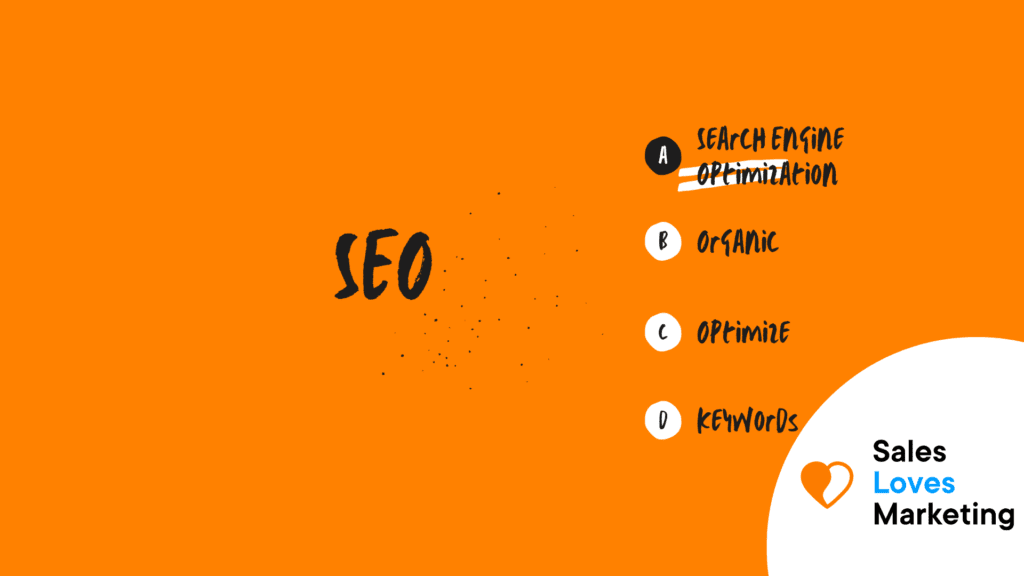What Is SEO?
SEO or Search Engine Optimization is defined as the practice of improving a site’s traffic through organic search engine results. In simple words, it means the practice of increasing a site’s visibility so it reaches more users; this can be accomplished by different factors such as links and keywords.
Recommended; SEO Consultancy
How Does SEO Work?
To understand Search Engine Optimization, first, a webmaster has to understand how a search engine works. Search engines use bots (known as crawlers or spiders) that go from site to site, collecting links and information about these pages and sending them to a database known as an index, then, algorithms analyze the information sent by the spiders (the factors analyzed vary from algorithm, and all search engines use different ones) and finally determine the SERPs Search Engine Result Pages) ranking.
As said above, each search engine uses a different algorithm to rank the web pages that will be showed to the users, and each algorithm will use its owns methods and consider different factors. Still, it is known that the most commonly used by those rankers are probably content quality, keywords research, and link building.
Why Is SEO Important?
The practice of Search Engine Optimization is important to any website owner because it is the only way a page has to be relevant and get traffic, which is probably the main purpose webmasters have when creating a new blog or page. Users make around trillions of searches every year and often find information about services or products, meaning that search engines and their optimization are key parts not only for blogging but also for digital marketing.
What Goes Into SEO?
Organic results
Organic results or organic traffic are any kind of traffic that the page does not have to pay for.
Traffic Quantity
The more traffic a page gets, the more the possibilities of users liking what they have to offer and interacting with it.
Traffic Quality
Of course, a content creator wants his site to get the most traffic possible, but if the users visiting the website are not the demographic it’s meant to, they are less likely to convert and come back in the future to the page. Hence, a website owner wants to attract visitors that are interested in the services a page offers.
SEO Success Factors
As said above, each search engine uses a different algorithm to rank the results on its SERPs, and each algorithm will use its own measurements and will take into account different factors; the big problem is that search engines companies such as Google guard their algorithms really well and it is not common that they share details about its functioning, so it can be difficult to know what to pay attention to when it comes to SEO. Still, some determining factors have been made public, or that are considered to be relevant by webmasters; here are some of these:
Keywords
Looking for keywords is considered to be one of the most important SEO factors; keywords are defined as the search terms a target audience is using, so guided by this concept, it is understood that keywords can help webmasters to understand the necessities of his audience and help him know what answers give to them.
Multimedia
The use of images, video, audio, and other formats can catch the user’s attention and make the written content easier to understand. Still, this multimedia should also be optimized to search engines; this can be done by adding descriptive text to supply the context and using a CDN (Content Delivery Network) to take some of the load off the servers.
Quality content
The most important factor when it comes to SEO is that good quality content is the first thing a content creator should be concerned about before even going to more technical factors. Giving the users fresh, unique, and useful content will make them more likely to stay on a website and convert. And search engines also take this factor but mainly by the users’ response to it.
How To Optimize A Site With SEO?
There are so many ways a website can be optimized, and they all have been addressed in the other sections of the article, but here is a resume of the most important ones:
On-Page SEO
- Descriptive URLs
The URL of a page gives search engines a signal about its content, so a URL’s structure should be as simple as possible.
- Meta titles and meta descriptions
Those are the previews that are shown of a website in the SERPs when a user searches. These are great to use the keywords the website wants to rank for and should always be clear and concise but eye-catching.
- Multimedia optimization
Images, videos, and any kind of media content can be hard to understand for search engines, so the proper thing to do is add a tag to it to be classified more easily.
Off-Page SEO
This is almost completely characterized by link building, which is the practice of creating external links that go back to a domain for it to gain authority; some of the most link building tactics are:
It consists of writing articles for other domains, so these, in exchange, will give a backlink to the writer’s website, being a win-win for both parties.
Just as its name says, paying promotions in social media platforms such as Facebook ads, to find users that may have interest in what a site has to offer.
- Community sites link building
Most webmasters only focus on getting the highest quality links, which is a good thing, but it can be really hard, so building links from other sources such as forums, Reddit, etc., is not bad for adding some authority to a website.
Get started with SEO yourself with this all-in-SEO tool.

One thought on “Search Engine Optimization (SEO)”
Comments are closed.